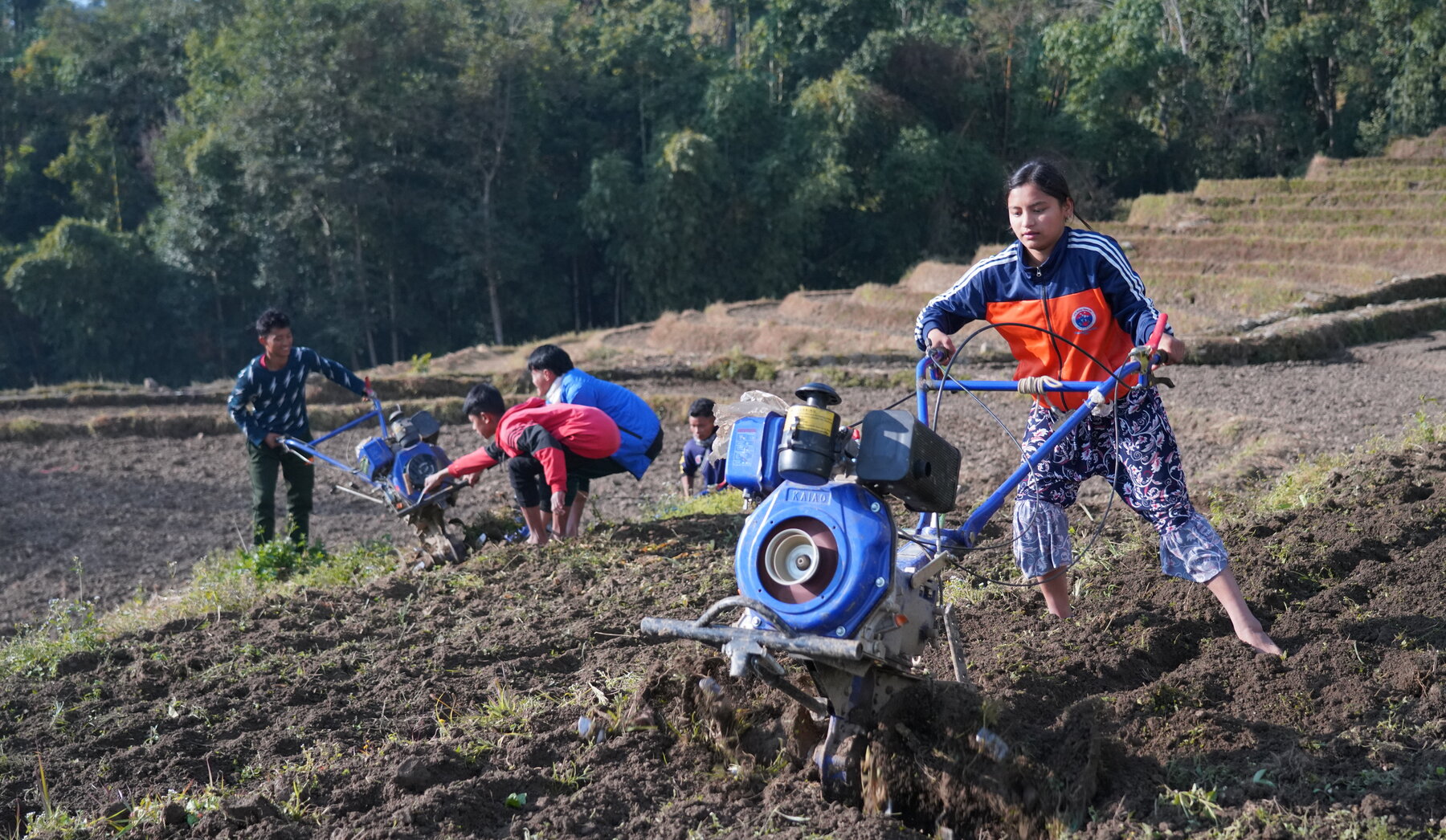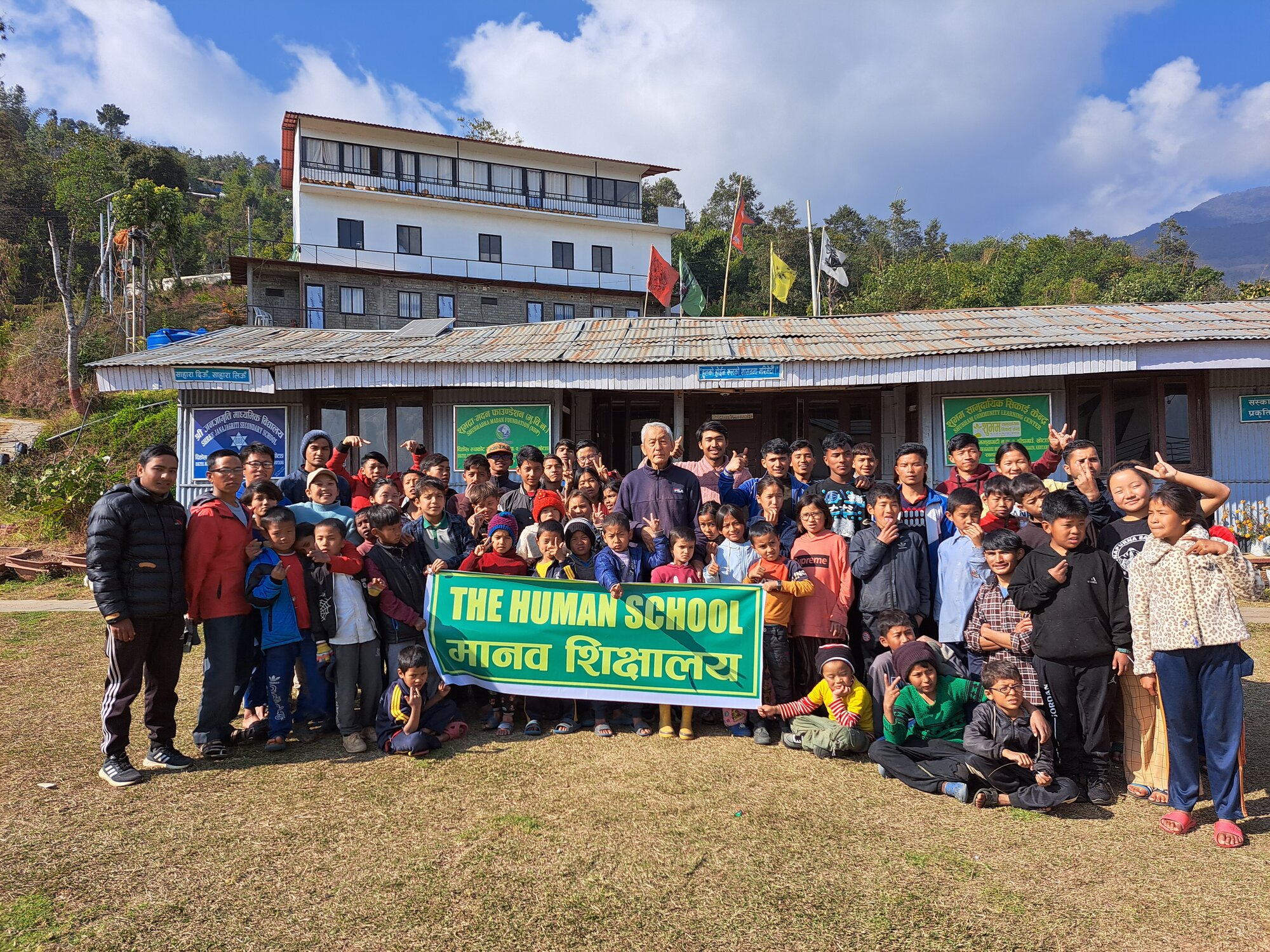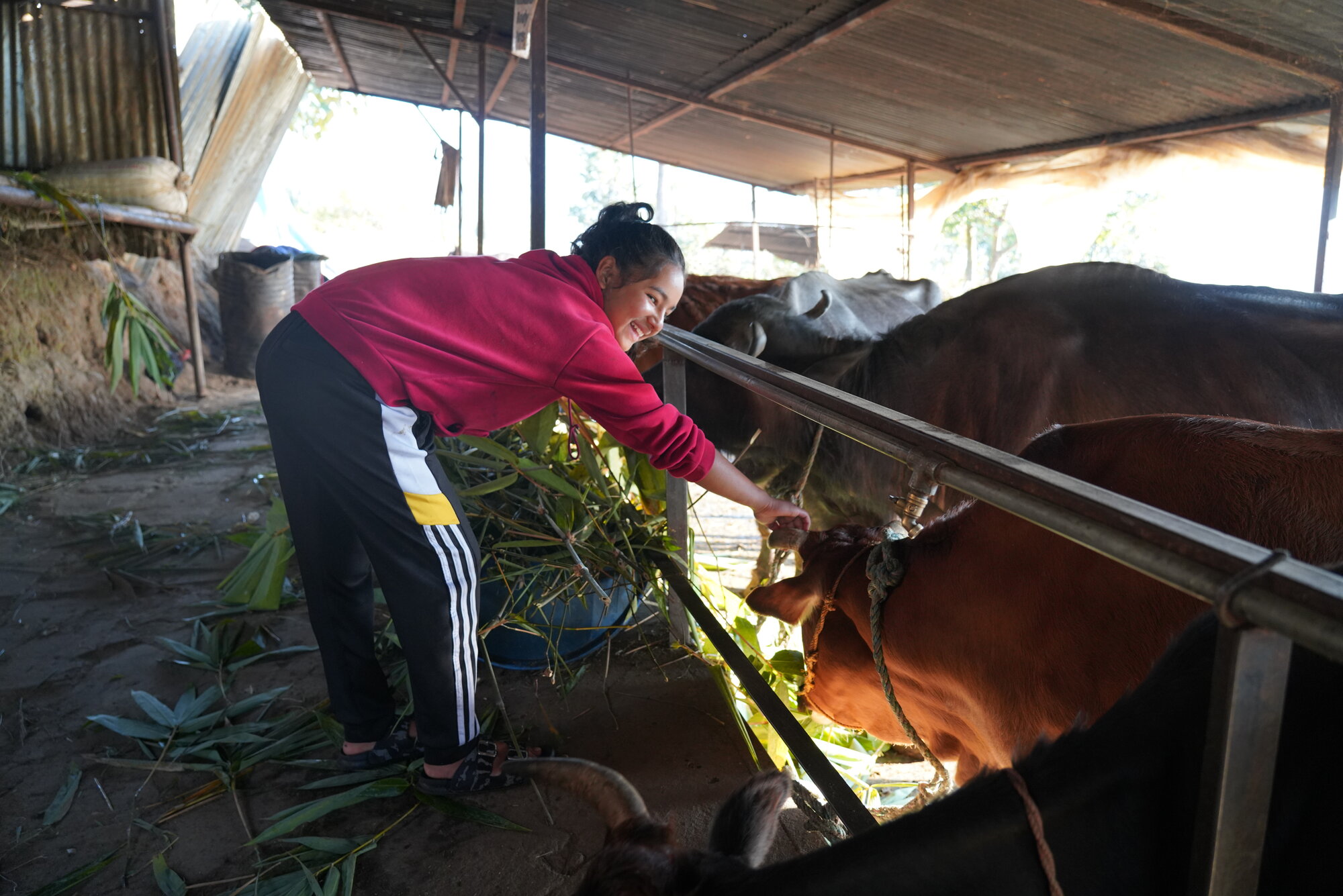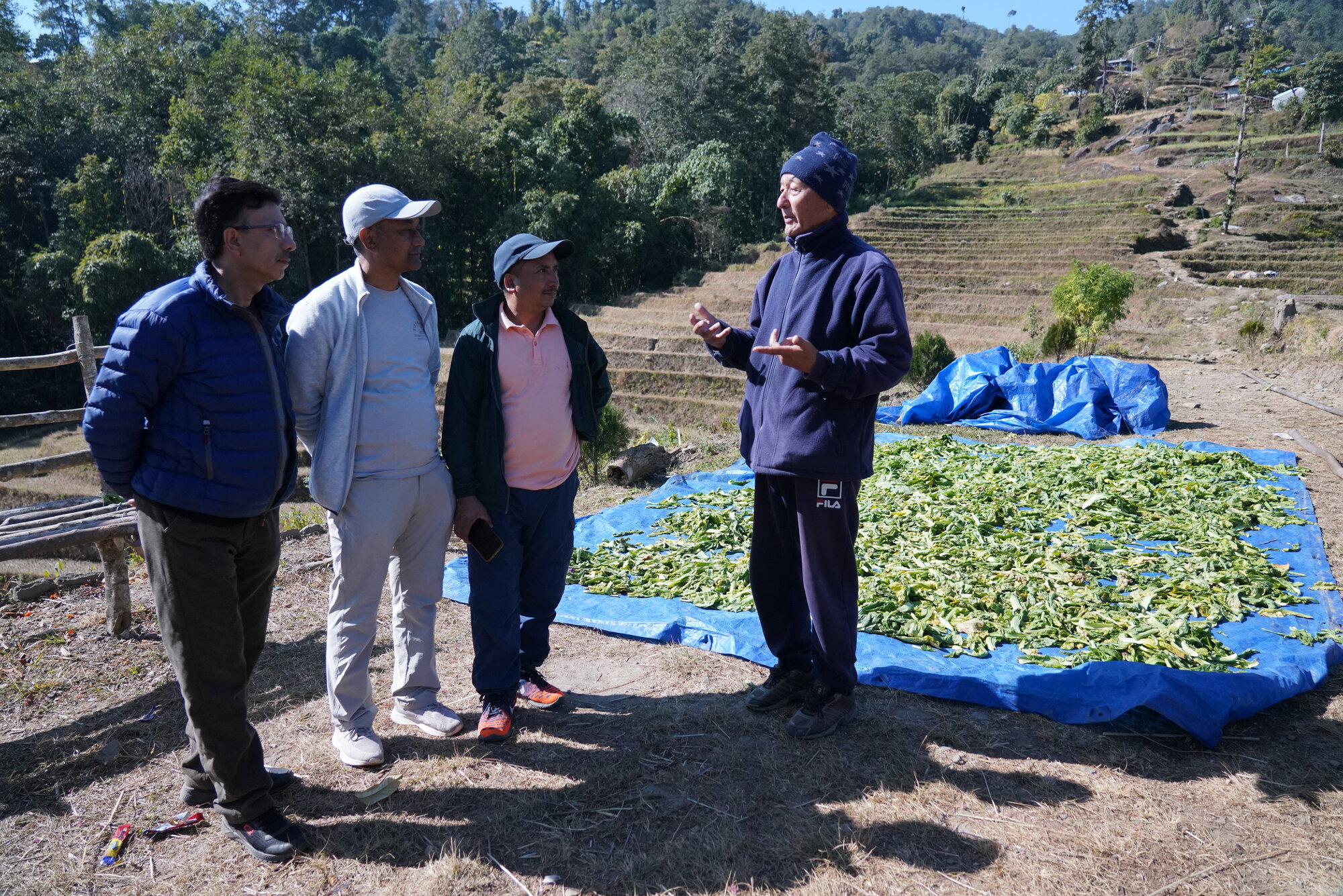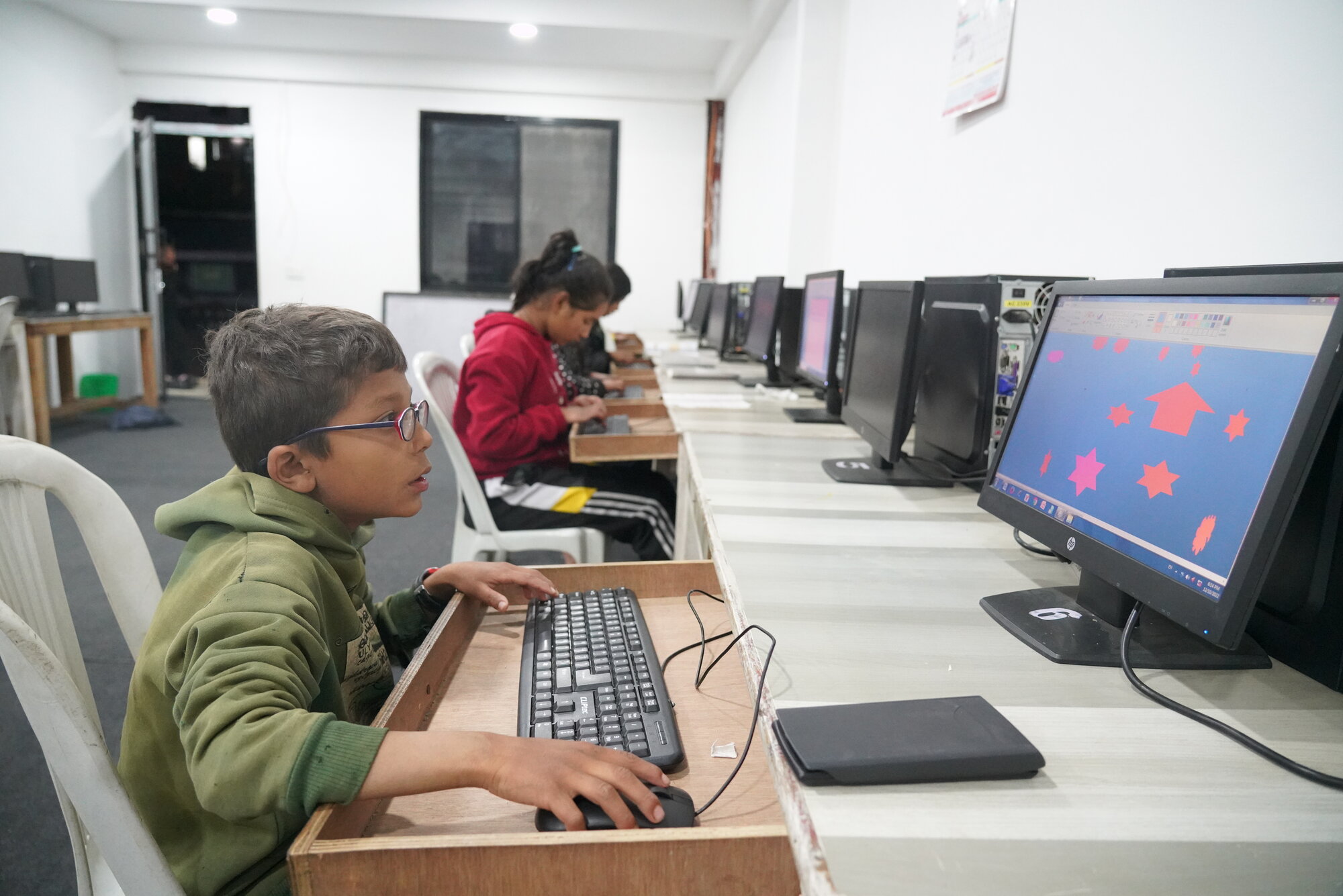After a successful career with the United Nations, Madan Rai returned to his native Nepal to set up a school to help children from backgrounds as poor as his own. His methods have proven controversial.
At dawn, you can hear the animals calling their caretakers. Pupils hustle to feed cattle, poultry, pigs, and goats. Their favourite is the pony, which they take turns riding.
The school lies in the foothills of the Khotang District, where it was abandoned by the government. It owes its new life – as the 'Subhadra-Madan Foundation' – to one of Nepal's most controversial characters, Madan Rai.
A controversial school founder
This 73-year-old gave up a well-paying job with the United Nations in 2003 to found the school which teaches 150 underprivileged children from across Nepal. But as a result he has faced accusations of child exploitation.
A green sign at the entrance reads, 'The human school'. Mottos are hung all over, 'This is a school of hard work', 'We teach life skills'. The most bizarre board is by the toilet, 'The school of human faeces, pee and sweat.'
Each pupil has their responsibilities
Pupils gather in the playground to exercise while the light is still dim. As they stretch their muscles, the sun breaks over the neighbouring hills, hitting three objects which look like satellite dishes: solar cookers filled with lentil soup.
The pupils are formed into groups, each with weekly duties. These range from starting the fire to baking the bread and milking the cattle. All of the pupils work to prepare the day’s first meal.
Sumana Sahani, who is aspiring to be a chef, is a 23-year-old pupil. She runs the kitchen. No one is left hungry. She and her team must now prepare lunch. "We will soon start up our first organic café in our new building," she says. "I'm also busy learning new dessert recipes on YouTube."
Manual labour during the day
Classrooms lie empty during the day. Most pupils are out labouring in the fields, levelling a new sports ground, driving the tractor, welding, sawing, milling grains, harvesting fruits and vegetables, butchering animals for meat, managing inventories and pantries, and building sheds for livestock.
While the smallest children, who are just seven, are preparing miniature growbags to learn floriculture, they stare enviously at the machines the older children are using.
All human and animal excretion is collected and turned into manure for farming. "Manure is food for plants," says Alisha Magar, a 16-year-old tenth grader. "Nothing goes wasted."
The school is almost self-sufficient
Rice is a staple in the Nepalese diet. While most private schools in Nepal never teach their pupils how to cultivate and produce rice, it is mandatory here. "A rice-consuming nation must know where it comes from," Madan says. "Although we are self-sufficient in almost everything, we are still dependent on local farmers for rice."
Madan claims the school’s running cost is around $15,000 per month. He uses the money he made while working as an agricultural expert for the United Nations Food and Agriculture Organization.
"When I joined the FAO in 1989, my monthly salary was $5,000. Back then, real estate was cheap, even in the Kathmandu Valley. I could afford to buy half an acre of land every other month, and I did." He has been riding a real estate boom that has seen values increase 20 times over since the year 2000.
Dangerous to students' health?
However, Madan’s life is not picture-perfect. His methods of running a school have also been criticized.
Laxman Rokaya, a small farmer, blames the school for jeopardising his son's health. He had transferred the boy from a nearby school in the hope of giving him a better education.
"My son was healthy and good at studies," he said. "But after he joined the school, he suffered from extreme fatigue, malnutrition and scabies."
"He was compelled to do hard labour, clean the toilet, which he absolutely hated, and not given good food." He ended up withdrawing his boy. "I tried to talk to the school, but they weren't interested. I thought of filing a police complaint, but what could a poor man like me achieve against a rich man like Madan."
The school rejects the complaint. Surya Rai, the managing director, said, "Before enrolling a pupil, we make very sure that the parents and their wards know what this school is all about."
Education is key
Madan grew up in poverty. His father left when he was five. His mother was determined to educate him, even, he says, selling her jewellery. In 1967, his life changed when he was awarded a scholarship to Mohanlal Sukhadia University in India.
When his career with the UN blossomed, taking him abroad, he always yearned for home. "It was a very well-thought-out decision to leave everything and return to Nepal."
He tried to enter politics, but came up short. Instead, he took over the school to teach real-life skills and produce skilled manpower for the future.
It is a background which clearly imparts the ethos of the school. "Pupils work hard because this is the school of hard work," said Surya Rai. "We teach them to do what humans do instead of suffocating them in classrooms."
The Author
More articles of the Author


